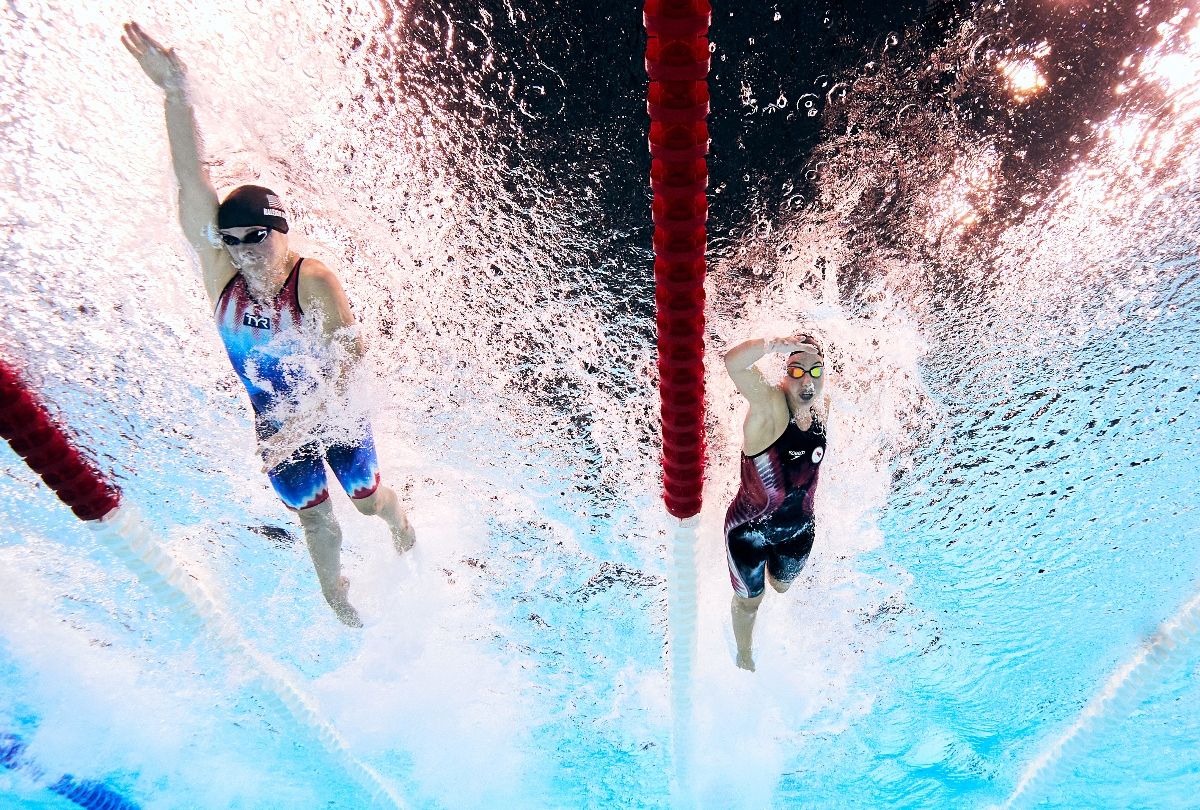U.S. Paralympic swimmer Christine Raleigh Crossley earned two more medals in Paris this week after facing criticism over an earlier medal moment at the Games.
Crossley on Tuesday won the 100-meter backstroke S9, setting a new Paralympic record with her time of 1:07.02. The swimmer, who is a first-time Paralympian, earned a silver medal the following day in the 100-meter freestyle S9.
But last week, after securing a second-place finish in the 50-meter freestyle S9 — and setting a world record in the process — Crossley shared that social media users and other Paralympians had questioned her disability.
“It’s so great that I just broke a world record and won my first Paralympic medal on the same day,” Crossley said, per USA Today. “But I got off a bus and got verbally accosted by another athlete from another country.
“To be told online by all of these bullies that I’m somehow not as disabled as I appear just because I can swim faster than them is pretty devastating,” she said, according to The Washington Post. “Because my family witnesses my disability every day and what it takes away from our family life, what it takes away from me as a human, as a woman, and it’s been pretty awful.
“I went from enjoying a world record to being utterly devastated that the entire world seems to think I was a cheater and that I was somehow faking the hole in my brain and the cyst in my spinal cord."
Though Crossley declined to identify the Paralympians who had criticized her, she indicated that it was a “prominent member of Team USA who has come after me the hardest.
“It’s just absolutely disgusting,” the swimmer said of the scrutiny. “They say that they want to be a role model for the future generations, yet when a new athlete comes in, to treat them that way, you’re saying those words for a sound bite.”
Kate Hartman, a United States Olympic and Paralympic committee spokesperson, said in a statement that the body was investigating the matter. “We take all matters of bullying, harassment and abuse with the utmost seriousness,” Hartman said, as noted by WaPo. “Every athlete deserves to be treated with respect and dignity, and we are committed to fostering an atmosphere that not only encourages excellence in competition but also prioritizes mental and emotional well-being.”
Crossley, 37-year-old mother of three and former Florida State swimmer, offered a candid look into her disability in an as-told-to piece published last week, after the controversial comments, on Today.com. Crossley shared how in 2007, she was involved in a car accident that left her with "some instability in my spine." The next year, as a pedestrian she was struck by a car, which she claims caused a tumor to grow her brain. In 2018, the athlete experienced paralysis on her left side as a result of brain hemorrhaging, per her Team USA profile.
According to Crossley's essay, she initially aimed for the 2016 Rio Summer Olympics, but subsequent injuries to her back and brain precluded her from doing so. "If I’m being honest, I also didn’t want to admit to the depth of my disability. I had muscle spasms and immobility on my left side, and I tried to hide it," she said. "Although I’m in my wheelchair every day, sometimes I walk with forearm crutches if my muscles aren’t as spastic, but it still puts a heavy strain on my body. When I’m competing, I also use a tapper, a guide at each end of the pool who taps me when the wall is approaching because my vision goes blank during hard swims.
"I’ve dealt with bullying because I’m not missing limbs or because people think I don’t 'look disabled,'" she continued. I want to show that Paralympians are more than athletes who are missing limbs. We are not just people in wheelchairs. We are not all blind. There is a spectrum of what makes someone eligible and there are many athletes who are missing out because they just don’t know. I want to help kids, the next generation of Paralympians, to embrace their sport.”
Read more
about this topic



Shares